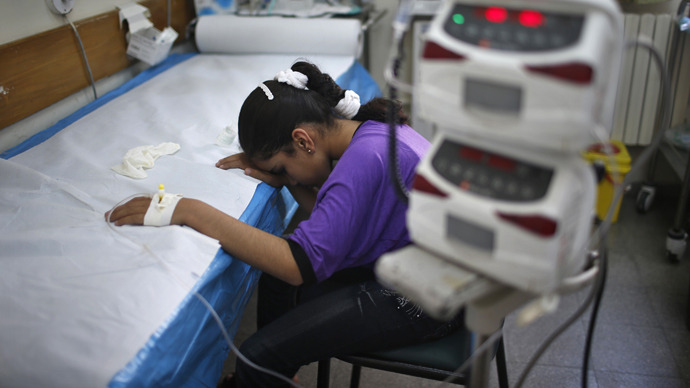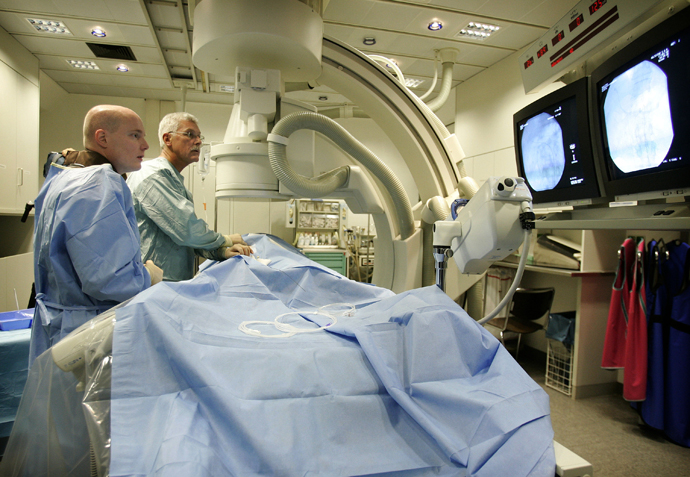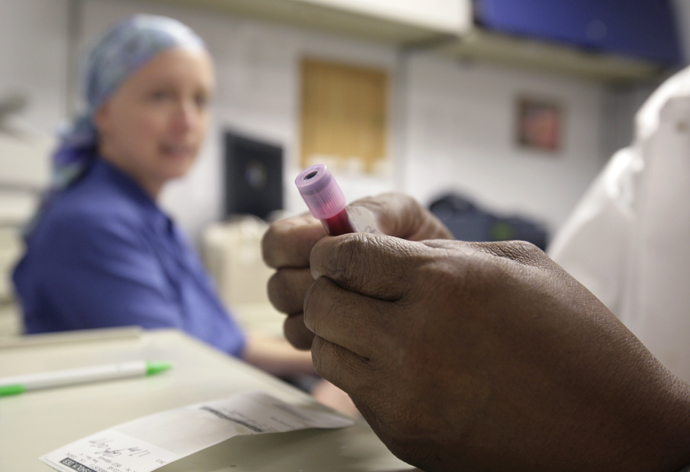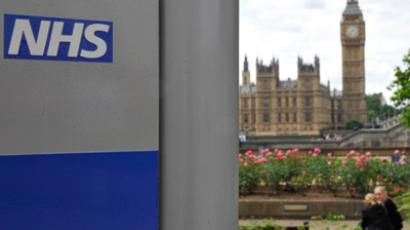'Profiteering' pharmaceutical giants killing cancer patients - report

An influential group of worldwide cancer experts has warned that the astronomical prices charged by drug companies are in effect condemning some patients to death.
More than 100 leading cancer specialists have accused the world’s drug industry of “profiteering” from cancer patients in the same way that unscrupulous food vendors raise the price of basic food stuffs after a natural disaster.
The authors of the article, which appeared in the journal Blood, are all specialists in blood cancer. Blood cancers, such as Leukemia, have been proven to be very responsive to cancer drugs.
The specialists are keen to get the message across that they understand that drug companies must make a profit on what they do, but the profit should be in relation to the money invested and should not take advantage of people with life threatening medical conditions.
“What determines a morally justifiable ‘just price’ for a cancer drug? A reasonable drug price should maintain healthy pharmaceutical industry profits without being viewed as ‘profiteering’. This term [profiteering] may apply to the trend of high drug prices where a life threatening medical condition is the disaster,” the specialists wrote in the report.
One of the best known of the fairly recently developed drugs is called Imatinib. It is popularly known under the brand name Glivec, and has proven very successful in the treatment of Chronic Myeloid Leukemia (CML).
With the aid of the drug, patients can now lead a nearly normal life expectancy whereas a decade ago they would have survived for a few years at most.

When Glivec was introduced in 2001 it cost £18,000 ($27,878) per
patient in the UK. The price tag rose to £21,000 ($32,526) while in
the US its price has sky-rocketed from $30,000 to $92,000. However,
all the research costs were recovered in two years by the initial
price which generated annual revenues of $900 million.
But in 2012, the drug’s annual revenues were $4.7 billion.
“Grateful patients may have become the financial victims of the treatment’s success, having to pay the high price annually to stay alive,” the specialists write.
Ken Campbell from the UK charity Beating Blood Cancers told RT that drug companies often try and carry out a process known as "ever-greening", where they try and make as much money on a drug before its patent runs out and it can be produced generically.
In the United Kingdom, all licensed drugs must first be approved by the National Institute for Clinical Excellence (NICE) before they can be used nationwide on the National Health Service (NHS), a free service for any British resident.
NICE values a year lived - the maximum amount of money allocated to a person for the price of treatment - at about £30,000 ($46,465). If a drug costs more than this they may not approve its use. In this scenario doctors may fill out a 14-page application to the Cancer Drug Fund, if they think a patient may benefit from a licensed drug not approved by NICE.
In the United States the situation is significantly worse for cancer patients.
The 15% of the population who do not have health insurance have little chance of acquiring the drugs they need, while even those that do are often required to pay 20% of drug prices. In the case of a drug like Glivec, this is unaffordable and so in effect makes the drug unavailable. Drug prices are the single biggest cause of personal bankruptcies in the US.

But despite the advantages of the UK’s NHS, there is not a bottomless pit of money. Professor Jane Apperley, one of the authors of the report, and chair of the department of Haematology at Imperial College London, told the Independent that high drug prices still harm patients in Britain.
“Of course we need the pharmaceutical industry to go on developing new drugs. It is very exciting that a number of cancers are now becoming susceptible to these new drugs. But the rising cost is unsustainable,” she said.
In a statement to the Independent the drug company Novartis, which produces Glivec, said that they “recognize that the sustainability of health care systems is a complex topic and we welcome the opportunity to be part of the dialogue. Our critical role, as one of the many parties working towards improving cancer care, is to discover and develop innovative treatments.”
Campbell says that the statement issued by Novartis “dodged the question”.
“They talk about the benefits of it. But they say nothing about their pricing model and their price tag,” he said.
He added that “as a charity we want to see an ethical approach to drug prices.”
Novartis continued in their statement that the drugs Glivec and Tasigna have given 9/10 of patients a normal life span.
However, a source told RT that this applies only to 9/10 of people who can afford the drugs in the first place.
But Novartis insisted that they “work together with government health care systems, charities and other payers to build successful cost-sharing models.”














